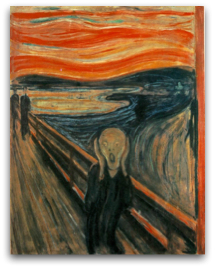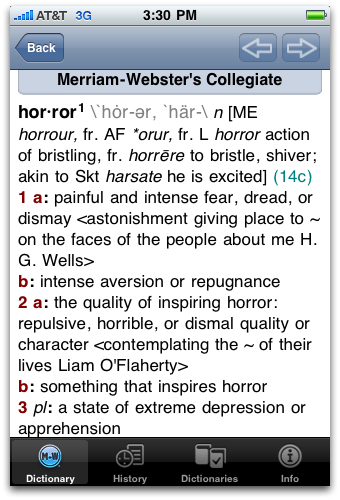 Last Sunday, I taught from Mark 14:32-50, which details Jesus' experience in the Garden of Gethsemane and his subsequent arrest. Our curriculum uses the Holman Christian Standard Bible which is one of my favorite English translations. In fact, about six months ago, I returned to using it exclusively on Sunday mornings. Occasionally, the HCSB breaks with the norms of tradition when it comes to translation, opting for accuracy over what sounds familiar.
Last Sunday, I taught from Mark 14:32-50, which details Jesus' experience in the Garden of Gethsemane and his subsequent arrest. Our curriculum uses the Holman Christian Standard Bible which is one of my favorite English translations. In fact, about six months ago, I returned to using it exclusively on Sunday mornings. Occasionally, the HCSB breaks with the norms of tradition when it comes to translation, opting for accuracy over what sounds familiar.
So, it caught my eye when I saw that according to the translators of the HCSB, Jesus was "distressed and horrified" (ἐκθαμβεῖσθαι καὶ ἀδημονεῖν) in Mark 14:33. It's this latter word, horrified, that really caught my attention. Was Jesus horrified in the Garden? Distressed, yes. Troubled, yes. But horrified? I mean, when I hear the word, horrified, I think of Edvard Munch's painting, The Scream. Thus, I wondered if the HCSB translator's simply over-translated here.
Honestly, even though I'd translated through this section in Mark at least twice in the past, I'd never given much extra thought to these two descriptors of Jesus' mental and emotional condition here, thinking of them as not much more than synonyms. Most translations make some variation on the words "distressed and troubled" sometimes even switching the two English words. Consider other translations of the phrase: "deeply distressed and troubled" (NIV/TNIV/NLTse), "greatly distressed and troubled" (RSV/ESV) , "to be sore amazed, and to be very heavy" (KJV), "to be distressed and agitated" (NRSV), "to be very distressed and troubled" (NASB), "troubled and deeply distressed" (NKJV), "very troubled and distressed" (NET). In my scan of translations using Accordance (I did not consult the 80+ translations on my bookshelf), I could find only two other translations besides the HCSB that used the word horror: "filled with horror and deep distress" (NLT1) and "Horror and anguish overwhelmed him" (REB). My initial label on the whole issue was simply over-translation. I figured the HCSB translators were guilty of over-translating the text here. If that was the case, I supposed that a more traditional reading would be found in the updated 2009 text of the HCSB.
My initial label on the whole issue was simply over-translation. I figured the HCSB translators were guilty of over-translating the text here. If that was the case, I supposed that a more traditional reading would be found in the updated 2009 text of the HCSB.
Not so. It read the same. This led me to the lexicons I have in Accordance. But even before I could do that, I had to consider the fact because troubled and distressed were interchangeable in many translations, and because the NLT1 and the REB placed horror in the first position, I wasn't really certain whether I was dealing with ἐκθαμβέω or ἀδημονέω in the HCSB. The use of the conjunction καὶ would technically allow for either order in an English translation.
Context does not help that much. These are both infrequently used words (I admit up front that I didn't have them in my working vocabulary for the NT, but I suppose I do now). ἐκθαμβέω occurs four times in the NT (Mark 9:15; 14:33; 16:5–6) and ἀδημονέω occurs three times (Matt 26:37; Mark 14:33; Phil 2:26). ἐκθαμβέω occurs once in the LXX (Sir 30:9), but there is no use of ἀδημονέω in the LXX.
| ἐκθαμβέω | ἀδημονέω | |
| BDAG | to be moved to a relatively intense emotional state because of someth. causing great surprise or perplexity, be very excited | be in anxiety, be distressed, troubled |
| Louw & Nida |
to be greatly astounded, with either positive or negative reactions — "to be amazed, to be astounded, to be alarmed" |
to be distressed and troubled, with the probable implication of anguish — "to be troubled, to be upset, to be distressed" |
| Liddell & Scott |
to be amazed | to be sorely troubled |
| UBS | be greatly surprised or alarmed; be greatly distressed | be distressed or troubled |
| LEH | to amaze, to astonish | NA |
As you can see, there does seem to be a bit of overlap between these two words; they carry aspects of synonymous meaning. However, there seems to be more heightened emotion in the first word, ἐκθαμβέω than in ἀδημονέω. If word order prevailed in the HCSB, did the REB and NLT1 switch the order for sake of translation? I only have one copy of an HCSB text with Greek tagging, and that is in WORDsearch (although I've heard it's coming for Accordance). I double-clicked on horrified in the WORDsearch HCSB, and as I anticipated, a window appeared tying the word to the second word, ἀδημονέω.
Regardless, I was still back to my original question about the HCSB's use of horrified, although it was now extended to the REB and NLT1 as well. Usually when there's a significant difference in a translation of a word or phrase in a more recent version of the Bible, there's been an influential commentary or article that's influenced the change. In this case, I don't know what that article or commentary is. I looked in the Word Biblical Commentary on Mark as well as the New International Greek Testament Commentary since both of these are often a bit more technical. Neither had any specific discussion of this issue.
I did find a note, however, in the lesser technical New American Commentary on Mark by James A. Brooks that might have had some bearing since both the NAC commentaries and the HCSB share the same publisher. Brooks writes:
Mark’s description of Jesus is shocking. Mark employed words that express the strongest possible anguish. The NEB does a better job than the NIV, NASB, and RSV in bringing out their meaning: “Horror and dismay came over him.” The REB has, “Horror and anguish overwhelmed him.” Matthew softened the statement, and Luke’s text is most uncertain.
So cheers to the NEB/REB, NLT and HCSB. I'm certain some influential article is out there, but we at least know this rendering goes back at least to the NEB. In the long course of translation history, the NEB continues to emerge as a greater influence in translation than is often thought. And as I've often noted, the NLT1 took more risks than the more conservative NLTse which came after it. And once again, the HCSB will break with traditional renderings for the sake of accuracy.
But there's one more thing...
Why is it that I would question Jesus' reaction of horror to the events that were before him to begin with? Could it be that a horrified Jesus didn't mesh well with the narrow-minded view of Jesus I sometimes have? Do I prefer the "Nevertheless, not what I will, but what You will" over the "Take this cup away from Me" when I think of Jesus? Am I guilty of picturing Jesus in the Garden of Gethsemane like the one in that painting that was on the wall of my Sunday School room as a child? You know the one. The one with the light-haired stoic Jesus. The Jesus in the brightly colored robes looking confident and resolutely skyward as his father in heaven radiated his glory down upon him.
Am I guilty of picturing Jesus in the Garden of Gethsemane like the one in that painting that was on the wall of my Sunday School room as a child? You know the one. The one with the light-haired stoic Jesus. The Jesus in the brightly colored robes looking confident and resolutely skyward as his father in heaven radiated his glory down upon him.
I talked about this with the class I was teaching at church. The Jesus in that painting really looks nothing like the Jesus described in Mark's account. I really can't imagine the Jesus in that painting saying "My soul is swallowed up in sorrow—to the point of death" (Mark 14:35). I don't really see that Jesus saying "Take this cup from me."
In the parallel passage written in Luke's gospel, we're told that "Being in anguish, He prayed fervently, and His sweat became like drops of blood falling to the ground" (Luke 22:44).
I knew a manager years ago who was told by the owner of the company to fire a particular individual. The manager didn't feel that she deserved being fired. He knew of some difficulties in her life that would be compounded by the loss of income. He stressed over having to fire her so much that he burst blood vessels in his face. I've never seen anything like that before or since. But I can't help feel that based upon the gospel writers' descriptions, Jesus' stress level was well beyond this—it would have been off the charts.
Jesus looked ahead to the events that were to come—his betrayal by a close friend, his arrest, his beatings, his crucifixion, his taking upon himself the sin of all humanity, his ultimate alienation from God the father, and then his death—and Mark tells us he was horrified.
What other word works here? Distressed? Troubled? I don't think so. Yes, I think horrified is the right word, the only word. Horror unlike anything ever experienced before or since. Horror over our sins would be enough, but the rest, too? I cannot imagine his total pain. If anything horror is not word enough.
But it will have to do.